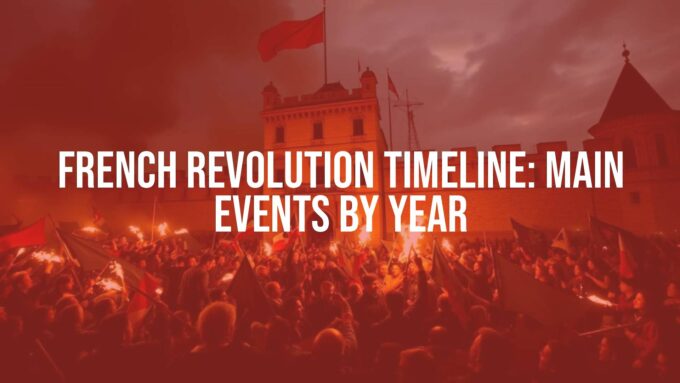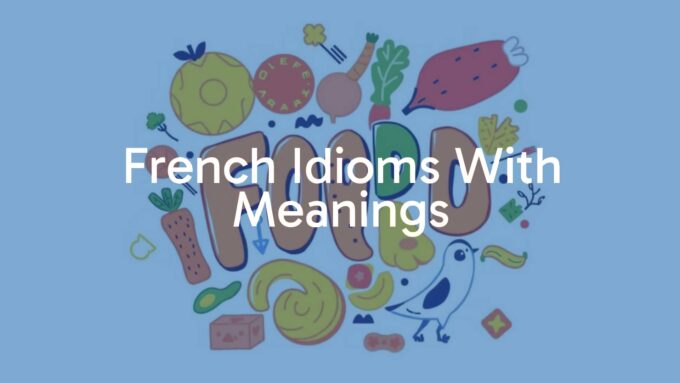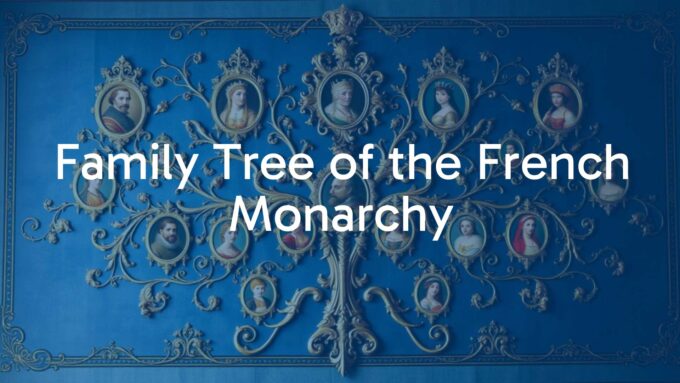French cultural values are the basic beliefs and ideas that shape how people in France live, interact, and view their society. These values come from a long history and show up in many areas of life, such as how people talk, what they eat, their art, and everyday traditions. Knowing these values helps you understand what makes French society special.
What Are French Cultural Values?
French culture comes from shared attitudes and habits that have been passed down over many years. The word “culture” itself has roots in French, meaning to grow or take care of something. Over time, French culture has taken ideas from many backgrounds, like Celtic, Roman, Frankish, and Germanic. The French Enlightenment helped create a strong sense of what it means to be French, building pride in the country’s way of life.
France is known as a “high-context culture.” This means people often communicate through body language, tone, and hints rather than saying exactly what they mean. Gestures, facial expressions, and the way words are said are important for understanding what someone really means. This is different from “low-context cultures” (such as the United States), where people usually say exactly what they’re thinking. This means visitors to France should pay close attention to these non-verbal cues.
Why Do French Cultural Values Matter?
These values are the base for French society. They guide how French people see the world, how they act with each other, and what they think is important. French values explain why people do things in certain ways, why certain customs matter, and why work and free time are organized like they are.
If you travel, study, or do business in France, knowing these values helps you handle social situations better, avoid mistakes, and build real relationships. Understanding these values also lets you enjoy French food, art, and daily life on a deeper level.
How Do French Values Show Up in Daily Life?
These values affect many parts of daily living. One example is the way meal times are special occasions for enjoying good food and company. The focus is on quality, not just getting full. The French also value close relationships, appreciating the present moment, and finding balance between work and free time. Laws like the 35-hour workweek show that personal life and time with family are important in France. Even as things change, these traditions remain strong.
Main Examples of French Cultural Values
The main values in French culture can be seen in their motto, social habits, attitudes towards religion, and more. These examples show what matters most to people in France.
Liberty, Equality, Brotherhood: The Motto in Daily Life
The French motto “Liberté, Egalité, Fraternité” (Liberty, Equality, Brotherhood) is central to French identity. It’s more than a slogan from the French Revolution of 1789 or a line in the 1958 constitution-it stands for the main values in French society.
| Value | What It Means | Example |
|---|---|---|
| Liberty | Personal freedom | Speaking your mind, choosing your life path |
| Equality | Fair treatment for all | Laws against discrimination |
| Brotherhood | Solidarity and community | National celebrations like Bastille Day |

This motto shapes how people think about their country and each other. French society values working together and helping others. It also influences how wealth is shared and how social programs are run.
Secularism (Laïcité) and Religion
France is very strict about keeping religion and government separate, a principle called laïcité. This keeps public life neutral about religion. Most French people have a Catholic background, but many also follow Islam, Buddhism, Judaism, or say they have no religion.
- Religion plays a private role; you rarely see public religious displays.
- Main holidays come from Christianity (Christmas, Easter), but are often celebrated in a non-religious way.
French people try to keep religion out of schools and government, showing that secularism is a key value.
Politeness and Formality in Social Life
Being polite is very important in France. A basic example is always greeting people with “Bonjour” (or “Bonsoir” after dark). Not saying hello is often seen as rude. The French also use “vous” (formal ‘you’) and “tu” (informal ‘you’), and starting with “vous” is seen as respectful. Once you get to know someone, people may become more relaxed and friendly.

Individualism and Self-Expression
French people value being themselves, even though they also see themselves as part of a bigger group. Taking care of yourself and your family comes first. This shows up in personal style-people dress nicely for work or to go out, and neatness is expected. Privacy is very important, and personal questions are often avoided.
Debate and Sharing Ideas
French culture encourages lively discussions and debates. Arguing about ideas, politics, or current events is seen as healthy and normal. People are taught from a young age to think critically and enjoy sharing their opinions. It’s normal to question ideas and to argue logically, but always with respect.
Pride in Language and the Way People Talk
The French language is a key part of French identity. People in France feel very proud when speaking French, and keeping their language alive is important to them. They often appreciate when visitors try to speak French, even if they make mistakes. The language is used precisely, which can make some conversations seem blunt to outsiders. But this directness is part of French communication.
Love for Art, Food, and Beauty
Art and food are a big part of French culture. Museums like the Louvre, gardens, and famous art are examples. People are taught to appreciate beauty and good work from childhood. Food is also very important, with meals seen as social events for talking and relaxing. The “Michelin Star” system, which grades restaurants, started in France, and French meals are known for their careful preparation and focus on taste, not speed.

Respect, Good Manners, and Daily Etiquette
Following social rules and good manners is expected in France. These unwritten rules guide how people greet each other, act at a meal, and behave in public.
Greetings and Addressing People
Saying “Bonjour” or “Bonsoir” is the most important first step. Shaking hands is common in formal settings, while close friends and family often greet by kissing both cheeks (“les bises”). The choice between “vous” and “tu” shows how close you are to someone, and using “vous” is usually safer until invited to use “tu.”
Table Manners and Eating Habits
Eating together is a big deal in France. Meals are for spending time with others, not just eating quickly. Some main customs are:
- Wait for everyone to be served before starting to eat.
- Keep both hands on the table (but not your elbows).
- Drinks are often served without ice.
Watching what the host does can help you follow local habits, and saying “merci” at the end of a meal is expected.
Punctuality and Time
Being on time matters, especially for work or formal events. For casual get-togethers, being a few minutes late is usually okay, but for meetings or appointments, it’s best to arrive on time. If you’ll be late, let the other person know. While sticking to a schedule is important, people also take time to enjoy meals and social moments, without rushing.
Dress and Appearance
Looking neat and put-together is very important in France. People dress nicely for work, shopping, and most outings. Wearing clean, stylish clothes is a way to show respect for others. France is famous for its fashion designers, and style is seen as a reflection of national pride.
Family and Social Life in France
Family ties and friendships shape daily routines and what people value in France.
Role of Family
Family is the main group in French life. In the past, families might include more relatives, but now most families are smaller and may include single parents or civil partnerships. Spending time with family is considered very important-laws like the 35-hour workweek are meant to protect family time. Meals are often shared, and weekends are for family gatherings.
Friendships and Social Groups
In France, there’s a clear line between close friends and others. With strangers, people are quite formal at first, but among friends and family, they are warm and open. Friendships grow over time, usually through shared experiences and meaningful conversations. Social life often happens around shared meals or outings, and supporting each other is normal among established friends. Privacy is valued, but within friendship groups, loyalty and support are important.
Regional and Social Differences in French Values
France is a diverse country, and its cultural values are not exactly the same everywhere. Different regions and social groups can have their own customs and habits.
Do All French People Share the Same Values?
No, there are many differences. Regions have their own traditions, languages, or dialects-for example:
- German dialects in the east
- Flemish in the northeast
- Italian in the southeast

Global influences and immigration also shape what it means to be French today. Some people want to keep traditional ways, while others welcome new cultural elements. This makes French culture rich and interesting, but also complicated. To really understand a region, it often helps to visit or research directly.
Social Class and Urban vs. Rural Life
In France, social class often comes from money and where people live. Tastes in music, food, and art often relate to class. The ‘bourgeoisie’, or middle and upper class, has a lot of say in education and business. Moving up in class is hard, but education is a main way to improve your status.
Cities, especially Paris, are seen as the heart of French culture and offer more jobs and resources. People from outside Paris may be called “Provinciaux,” sometimes in a negative way, even though regions outside Paris have their own unique cultures. Local customs can vary a lot, for example, the east of France has noticeable German influences. So, French culture is much more than just Paris-it’s a country full of different identities and ways of life.













Leave a comment